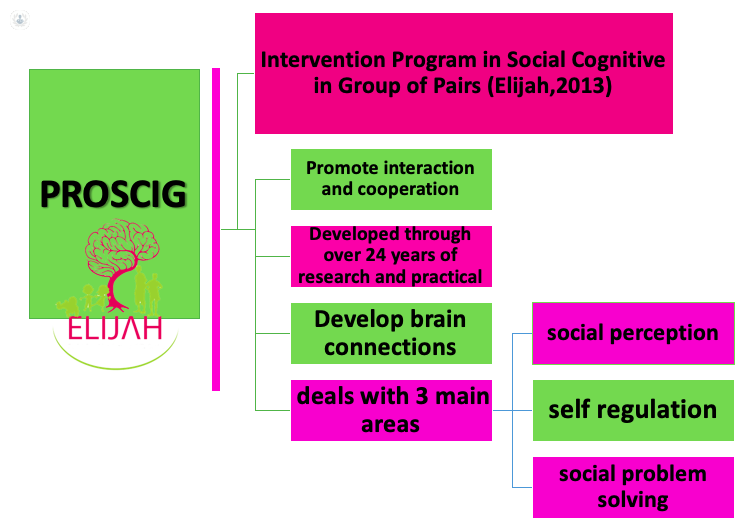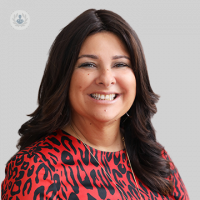How can I improve my child's social skills?
Written in association with:Human beings are sociable creatures and have developed many ways to communicate our thoughts and feelings with others around us. Dr Debora Elijah is a cognitive neuropsychologist dealing with social skills in children at her private practice, The Elijah Centre, in London. She explains to us how we, as parents, can support social development in our children and gives us a quick overview of the programmes on offer at her private practice.

What are social skills?
Social skills are the skills we use every day to communicate and interact with people around us. McFall (1982) defines these as specific behaviours that allow a person to be judged as socially competent by others in a particular social task. These behaviours include:
- Overt behaviours, such as body language and facial expressions, are needed in order for us to engage in interactions with other people and produce a positive outcome.
- Cognitive mechanisms, such as the ability to maintain, focus, and process information. These abilities determine how we respond to situations.
What is social competence?
Social competence is the consequences or outcomes of a person's interactions with other people. These consequences may be long-term or short-term and reflect the impact of social response on other people or the child themselves.
Social competence also reflects having an ability to take another person’s perspective regarding a situation, learn from the past experience and apply what you have learnt to any changes in social interactions. A child's level of social competence is what determines whether or not there is a social problem that needs dealing with.
How do we categorise a child’s social interactions?
Young children communicate their thoughts and feelings in many ways, through body language, facial expressions, playing and words. In order to understand how a child socialises we divide their social skills into these categories:
- Conversational skills
- Prosocial, friendly behaviours
- Sharing, expressing positive feelings, helping and inviting
- Conflict resolution skills
What are the basic macro- and micro-level social skills?
These are small variations in tone and body language that we use when we interact with others. These are known as micro-level skills and show engagement in the interaction. They include:
- Posture
- Eye contact
- Facial expression
- Volume and tone of voice
- Response time
- Gestures
- Social distance and many more.
There are also macro-level skills that are required for responding to specific social tasks. Macro-level skills include:
- Giving and receiving greetings
- Giving and receiving criticism
- Asking for and giving help
- Inviting others to join in with an activity
Social thinking vs. social skills: thinking with your eyes
For children with poor social abilities, the intervention needed requires teaching more than just basic social skills. We need to teach students to become more efficient social thinkers before we can expect them to produce better social skills.
In order to do this, we need to teach children how to figure out what another person may be thinking and feeling by teaching a child to ‘think with their eyes’, rather than simply asking them to maintain eye contact. People’s eyes are often a source of information and by following someone’s eyes, children can decipher what the other person is thinking or what their next action might be.
As parents, how can we model positive social skills?
The first place we learn social skills is at home and what we do as parents is more important than what we say. To help your child develop good social skills, consider teaching your child to be more confident, help them to brainstorm to solve problems with their peers and always show consideration to others. Don’t worry if your child doesn’t always listen to you, worry that they are always watching you!
How can we improve social development in children?
- Organise playdates: these are a crucial part of growing up, but kids with social issues can have a hard time making plans.
- Teach empathy: run through different scenarios by asking your child how other people might feel when certain things happen, and substitute different situations each time.
- Explain personal space: let your child know the importance of personal space and teach them how to interact effectively with their peers.
- Practice social overtures: teach children the proper way to start a conversation, get someone's attention, or join a group of children who are already playing together.
- Go over taking turns: sit with your child for at least an hour a day and play with him to explain what it means to wait, take turns, and share.
How do you teach social skills at The Elijah Centre?
The Elijah Centre is a specialist provision for children, toddlers and adolescents (from 2 years to 17 years old) who display mild social communication difficulties, social sensory sensitivities, ADD and ADHD.
Through a variety of structured explanations, games and activities children will learn the necessary social skills to make friends, build positive conversations and interactions and learn to respect adults, their peers and themselves. Our work at the centre has shown an increase in the number of key areas as shown in this diagram.

What is PROSCIG©?
We use the PROSCIG© methodology to teach and engage skills such as those necessary for their social and emotional development. It is a unique intervention made up of a series of structured activities and exercises to improve a child’s social communication skills which consists of the following three modules: social solving problem, social perception and self-regulation.

The programme is located in Northwest and Central London, and implements a social-cognitive approach, with a personalised and holistic framework related to all areas of child development. The PROSCIG© program is an approved scientific, clinical and educational therapy held in peer groups with a therapist. The most important aim of PROSCIG© is to empower families and individuals to fulfil their full potential in life.
Dr Debora Elijah is a neuropsychologist practising privately at the Elijah Social Cognitive Skills Centre in London. If you would like to book a consultation, visit her profile here and check her availability.


